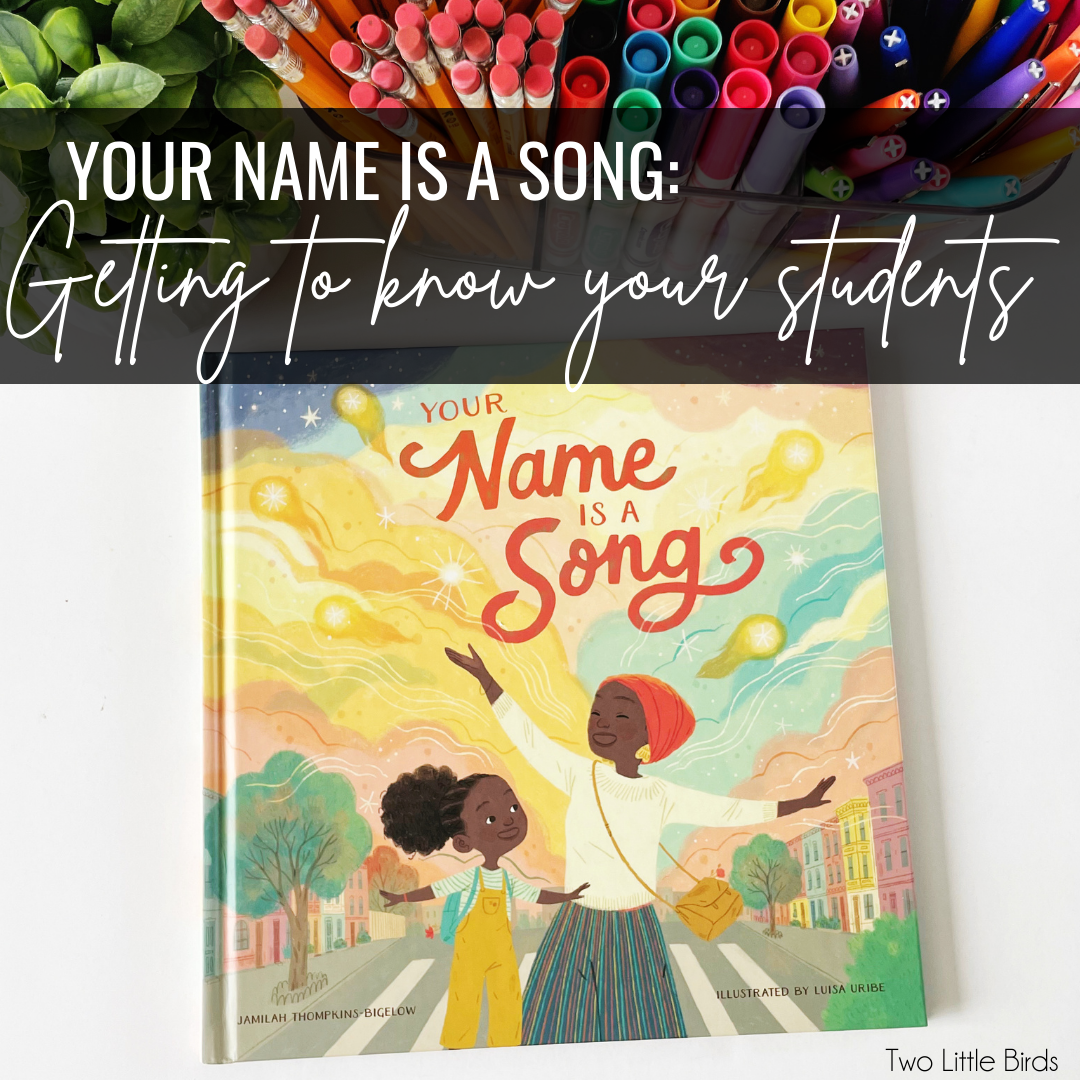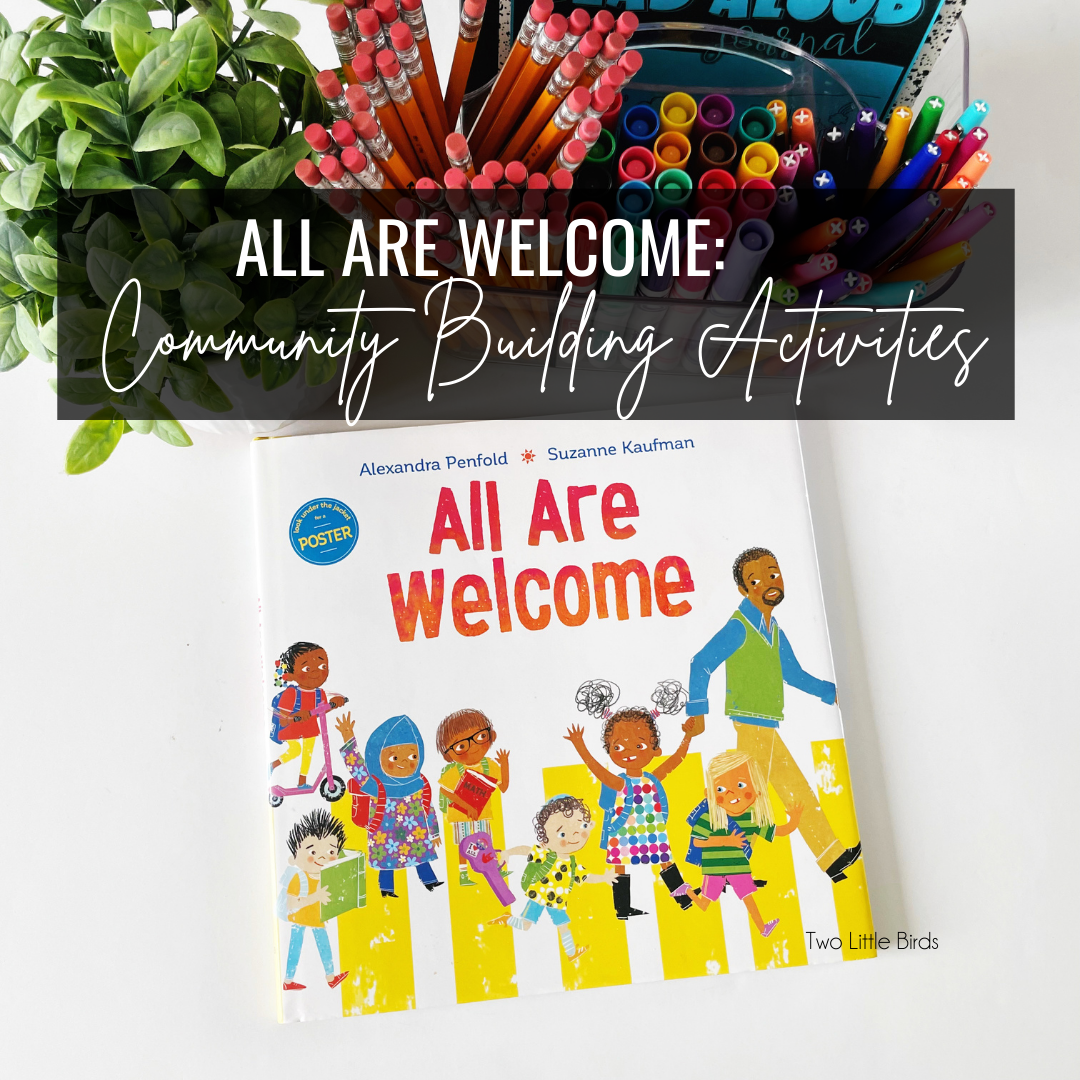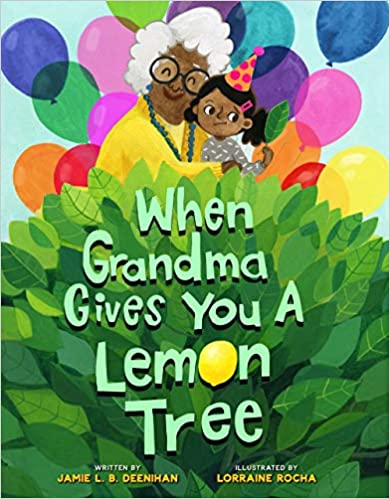“When Grandma Gives You a Lemon Tree” by Jamie L.B. Deenihan is a bright, colorful book with so many great discussions to be had. There are so many great discussions to have as you read this book aloud and one big one that stands out as you read is etiquette and teaching students graciousness. There are so many vibrant illustrations that will captivate you and your students. As you read and look carefully at the pictures, they really make you think. The underlying focus on the importance of screen-free time really will really leave an impact on you and your students.
The book has a wonderful message that allows you to open up conversations with your students about giving gifts, receiving gifts, and being a gracious giver and receiver. The lemon tree is an unexpected gift that has a lasting effect, as will this fun and clever story.
Skills to teach with “When Grandma Gives You a Lemon Tree”:
- Character development
- Theme
- Inferences
- Beginning-middle-end
- Connections
- Compare and contrast
- Sequence of events
- Problem/solution
5 Favorite “When Grandma Gives You a Lemon Tree” Activities
“When Grandma Gives You a Lemon Tree” is such a great book to read and discuss that the best gifts are not always “things.” Many students can relate to receiving a gift that they did not ask for, or maybe something that they already have. The narrator's polite response and acceptance of the gift are relatable to students. The long-lasting experience that the narrator has while caring for and growing the lemon tree is a great lesson for students that may have similar “want” lists as the narrator. There are great talking points throughout the book such as being gracious, proper etiquette, patience, being responsible, earning money and knowing how you’d like to spend it, and helping your community.
Here are some of my favorite activities to do after reading the book.
1. What happens when you get an unexpected gift?
The narrator speaks directly to the reader, teaching them how to act when they get an unexpected gift. “Act excited, say something polite. Keep smiling.” It is really cute and relatable to students. It also really gets students to think about times that they had to smile or say something polite and allows you to talk about the etiquette of receiving gifts.
Students can reflect on a time that they received an unexpected gift. You can share a funny story yourself to help students feel more comfortable or to jog their memories. Have students write about their unexpected gift and how they reacted.
2. Being polite in your response:
The narrator talks directly to the reader and gives suggestions as to what to do when you're given an unexpected gift but students can write down responses that are polite and gracious. They can take cues from the narrator and their own experiences as they think of things to say to the unexpected gift's giver.
3. Being Gracious:
Just as you can imagine what you WOULD say when someone gives you something unexpected (like a lemon tree), students can consider what they WOULD NOT say. The narrator again gives some funny suggestions to the reader such as “don't harm your lemon tree.” Students can think of funny (as well as realistic) things that may go through their head when they do not get a gift that they want and put those ideas to paper.
4. Taking Lemons and Making Lemonade:

One of the most powerful parts of the book is when the narrator has worked hard to earn the money and purchase all the things that she originally wanted and she chooses to help her community. This is a surprise as you are reading the story, especially to students whose lists may look similar to the technology filled list of the narrator. It's also a thought provoking part that prompts students to think about what they could do to help their community too. While she plants a garden, students can begin to think, “what is something that I can do for my community, school, or neighborhood?”
5. Being Gracious:
There are so many amazing things to learn from this fun story, but being gracious is one of my favorite takeaways from the characters. You can discuss graciousness, and students can write about something that they learned from the characters.
“When Grandma Gives You a Lemon Tree” is such a beautiful book to share with your students. Your students will relate to the main character and see the impact that an unexpected gift can have on someone. They will not only enjoy the book, but learn some important lessons too.
I hope you and your students love it!
You can grab a free one-page guide for using this book in your classroom here:
You can find more of my favorite read-aloud books HERE.
And read more about why I think reading aloud is so important HERE.
You might like this blog post about self-love.
You might also like to read more about these books:
Shop this post:
You can find the book, “When Grandma Buys You a Lemon Tree” here:
This is an affiliate link and I receive a small commission when you purchase with this link.


















